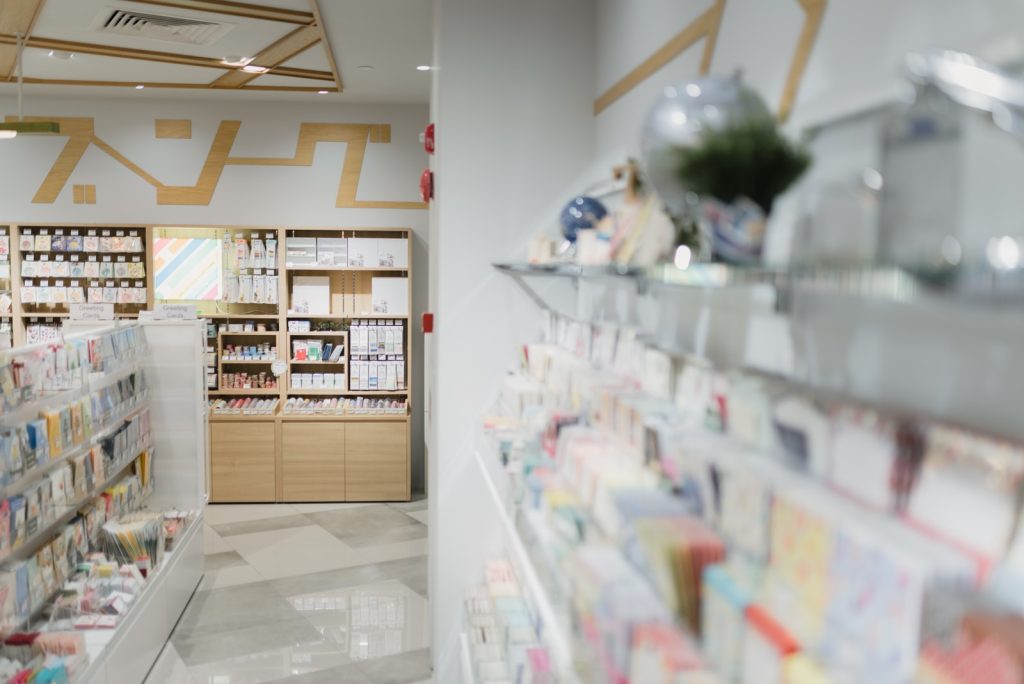Retail Pharmacy in Nigeria (also known as Community Pharmacy) practice is a critical arm of healthcare in any country and is usually the first point of contact with the healthcare system. It is usually the first point of health counseling and/or referral for patients when they experience initial feelings of infirmity or unwellness, for 2 main reasons:
- Proximity – Retail Pharmacies are usually ubiquitous within cities and could be the closest healthcare facility in rural areas.
- Healthcare affordability – In Nigeria, and of course, to a very large extent in Sub-Saharan Africa, the majority of patients pay out of pocket for healthcare expenses. These expenses ramp up as soon as one has to get to the hospital, so a typical citizen who is uninsured will prefer to see a community pharmacist first to minimize expenses.
Other services rendered to patients/customers include therapeutic drug monitoring, prescription filling, recommendation of non-prescription Medicines, otherwise known as Over-the-Counter (OTC) Medicines, patients’ disease education, provision of drug information services to other healthcare practitioners, preparation of extemporaneous mixtures, etc.
The Retail Pharmacy practice, on the other hand, is also a business that ranges from Small to Medium and sometimes Large in size. This business is viable when it is well set up and contributes to the economy of the country through the payment of taxes and providing employment for different categories of employees, including Pharmacists, Sales Assistants, Inventory/Procurement Managers, Accountants, Business Managers, etc.
Highlighted below are some of the steps that can be taken to increase the chances of success when starting a retail pharmacy in Nigeria.
1. Retail Pharmacy in Nigeria: Start with a Vision
To start a retail pharmacy in Nigeria, you need to have a vision. Your vision is a futuristic state where you expect your business to be. It is usually long-term, which can be as short as 5 years or as much as 10 years or more. It is as simple as defining it as your destination. Where do you see your business in the future? What will be a Unique Value Proposition that will differentiate you from other businesses?
With a clear vision, you can then think of your mission, which is more or less what you will focus on doing to get there. Check out the video below – by Pharm. Bunmi Olugbeja of Primeah Pharmacy – for an example of how to differentiate your retail pharmacy practice.
2. Register your business with the Corporate Affairs Commission (CAC)

Barring unforeseen circumstances, you can now register your business in Nigeria in less than a month through the Corporate Affairs Commission’s Portal. If you have the time, this is something you can now do yourself, as all you need to start is to register/create an account for yourself on the portal and apply for a name search.
Once approval is given (usually within 24-72 hours), you can then initiate the process of registration, providing all the required information online. The process requires being meticulous in filling in the necessary information; otherwise, you will get a query from time to time to provide the right information.
Click here to see instructional videos from CAC on how to go through the process
On the other hand, if you do not have the time to apply and follow through personally, you can engage the services of approved CAC agents and legal practitioners.
Note that the regulatory body for pharmacy practice in Nigeria – Pharmacists Council of Nigeria – requires that a Registered Pharmacist has to be one of the company directors and have the majority shares in the company that you have registered.
READ ALSO: 5 Effective Ways to put your Brick-and-Mortar Business Online
3. Retail Pharmacy in Nigeria: Finding the Right Location

Your location is a Critical Success Factor. A thorough analysis of the potential traffic to the premises needs to be done before a location is chosen. Factors to consider in this include, among others:
- Amount of foot traffic within the vicinity,
- Vehicular traffic, with ease of parking considered,
- Proximity to a Key Healthcare Center,
- Proximity to a major Bus Stop/Train Station
- Proximity to other high-traffic businesses
- Residential / Industrial environment, etc.
A good location analysis will show you that the potential (or lack of it) to have maximum traffic is appreciable to generate enough sales and grow the business, not just for today but also for the future.
Traffic that is inadequate is not likely to produce enough sales to cover your overheads and could potentially lead to business failure. Quite a few pharmacies close down every year because of this singular reason, not so different from the high mortality rate of SMEs in general.
READ ALSO: 5 Small Business Mistakes to Avoid in Nigeria
4. Apply to the Pharmacy Council of Nigeria (PCN) for Location Approval

Pharmacy practice in Nigeria is overseen and regulated by the Pharmacy Council of Nigeria (PCN), a federal agency created by the Pharmacy Council of Nigeria Act 2022. PCN regulates all aspects of pharmacy education, training, and practice, including Pharmacy Technicians and Patent and Proprietary Medicines Vendors (PPMVs).
Having completed the location analysis and you believe you have found the right one, the next step will be for your Superintendent Pharmacist to apply to the PCN for location inspection and approval. The council requires that:
- the location is not in too close proximity to a major market, bus terminal, or an environment not conducive for medicines,
- the pharmacy space should be at least 30 square meters in size, and
- the location must be at least, 200meters away from a pre-existing retail pharmacy.
Post-inspection, you get a go-ahead approval to continue setting up the premises, pending a final approval which comes from the second round of inspection. This second inspection & approval officially gives the business the legitimacy to do business.
For a more detailed step-by-step hand-holding, check out this post! Starting a Pharmacy in Nigeria: The 2026 Irrefutable Roadmap to “Successful”
5. Design and Set Up your Premise
By regulation, the set-up of the pharmacy has to show a clear demarcation between non-prescription drugs – Over-the-counter (OTCs) – and prescription-only medicines (PoMs).
Functional considerations in terms of space include the dispensary, the counter, customer circulation area, store (optional, depending on the scale of the business), counseling room, etc. This should be carefully considered to create an aura of professionalism in the practice.
Aesthetics also play a major factor in the visual appeal and the attraction of customers to your practice. The design of the shelves, gondolas, counter, temperature control, and lighting should be moderately attractive to create some level of comfort for customers/patients.
With the learnings about the importance of personal sanitation when it comes to the control of the spread of COVID-19, provisions can also be made for customers/patients to wash or sanitize their hands.
When all is set, the Superintendent Pharmacist can then apply for a final inspection and approval by PCN, as well as the maiden annual registration.
6. Identify, Engage & Procure products from Registered Wholesale Distributors

The drug distribution system in Nigeria today leaves much to be desired, as there is a subsisting chaotic angle to it. Nigeria is known for the so-called “drug markets” where drugs are traded in very inconducive environments and conditions of storage. In order to reduce the likelihood of procuring sub-standard and/or fake products, it is always advisable to patronize PCN-registered wholesalers and distribution companies.
Another trend in the wholesale distribution of pharmaceuticals is that quite a few distributors and wholesalers now provide delivery services and online ordering systems to streamline the whole process and logistics of ordering for stock.
7. Staffing
The premise has to have a pharmacist on duty at all times the pharmacy is open. The Superintendent can be assisted by Locum (Part-time) Pharmacists since retail pharmacies are usually open from morning to night, typically between the hours of 8 AM to 10 PM. Some pharmacies in secure locations provide 24-hour services.
Staffing considerations are made based on opening hours, which could be in shifts – morning, afternoon, and possibly night. A start-up pharmacy can start with Sales Assistants to work closely with the pharmacists in each shift and, as the business grows, other headcounts that could be required include Inventory/Procurement Officers, Accountant, Security Personnel, etc.
Note that there could be other minor steps to take in starting a retail pharmacy in Nigeria. Having said that, from my experience, these are the big blocks. Please feel free to ask questions and comment below.
READ ALSO: 5 Effective Ways to put your Brick-and-Mortar Business Online
FAQs
What makes retail pharmacy in Nigeria a vital part of healthcare?
Retail pharmacy practice is a critical arm of healthcare because it is often the first contact point with the healthcare system, providing health counseling, initial diagnosis, and referral, especially due to their proximity and affordability.
What essential services do retail pharmacies provide besides dispensing medication?
Besides filling prescriptions, retail pharmacies offer therapeutic drug monitoring, recommending OTC medicines, disease education, drug information services to healthcare professionals, and preparing extemporaneous mixtures.
How can I increase the success rate when starting a retail pharmacy in Nigeria?
To increase success, start with a clear vision and mission, register your business with the CAC, find a strategic location, comply with PCN approval, design a professional setup, procure products from registered wholesalers, and hire competent staff.
What are the key regulatory steps for setting up a pharmacy in Nigeria?
Key steps include registering your business with the CAC, applying for location approval and inspection by the PCN, ensuring the location meets specified criteria, and obtaining final approval after inspections.
What should be considered in designing and setting up a retail pharmacy premise?
Design considerations include clearly separating OTC and prescription medicines, creating functional spaces like dispensary and counseling rooms, ensuring aesthetic appeal, and providing hand sanitizing facilities to promote safety and professionalism.




Pingback: How to run Retail Pharmacy in Nigeria for Success in 7 Steps - Ideas Pro Life
Pingback: Don't be Ignorant! 4 Revolutionary Retail Pharmacy Trends in Nigeria - Ideas Pro Life
How much will be needed to register a retail pharmacy business in Nigeria.
Hi Elizabeth. The registration actually starts with your registration with the Corporate Affairs commission, and then by Pharmaceutical Society of Nigeria (PSN) and the Pharmacy Council of Nigeria (the ultimate regulator). As at early this year, all these registrations can cost you minimum of about N300K.
Hello Elizabeth. Sorry for my delayed response. How much depends on a few factors.
1. The nature of community (rural, peri-urban or urban) where the pharmacy is to be sited. This determines cost of rent and other amenities cost
2. The type of furnishing to be used for your cabinets, shelves and gondolas. Wood will be the cheapest option while other more expensive but aesthetic options will be aluminum with glass or HDF/MDF wooden boards.
3. Cost of start-up inventory. Allowance should be made for essential medicines like antimalarials, analgesics, antibiotics, etc. Others can be added based on demand in the premise.
So in other words, based on my experience, you can spend from N3 million (if you are in a rural/semi-rural area) to N15 million in an urban high brow area.
Good morning,
Iam currently looking into opening a retail stores for medicines as a retirement plan please how do I go about it?
thanks.
Hello madam. Thanks for engaging with this question. You will need to be a pharmacist or have a pharmacist on the board of your company registered with CAC. After sorting out the regulatory hurdles, one of the most important box to check is location. Consider busy locations where vehicles can also park easily. The basic steps you need to take are in this post – https://ideasprolife.com/how-to-start-a-successful-retail-pharmacy-in-nigeria-in-7-steps/.
Good afternoon sir/ma
I’m thinking of opening a chemist/pharmacy store as a plan B for myself…. So how’ll get registered by the PCN after my registration with CAC?
Hello Kafayat. If you want to open a Pharmacy, you need a Pharmacist on the board of the company you registered with CAC. Moreover, if you are not a pharmacist, then you need one to do the registration for you. On the other hand, if you are planning to open a Patent Medicine Store (the so-called “chemist”) those requirements above are not mandatory
Good afternoon sir/ma
I’m thinking of opening a chemist/pharmacy store as a plan B for myself…. So how’ll get registered by the PCN after my registration with CAC?
Hi Kafayat,
To get registered with Pharmacy Council of Nigeria, you need to employ the services of a Superintendent Pharmacist who will interface with the Pharmaceutical Society of Nigeria and the PCN on your behalf – I presume you are not a pharmacist. You can reach me on abiola@ideasprolife.com so we could arrange a virtual call to guide you through the process.
Hello good evening!
I’m currently looking to open a pharmacy! Please do you offer classes that I can pay to help me?
Hello Batula. We can connect on Linkedin to book a virtual discussion about it. My profile link is https://www.linkedin.com/in/abiola-joseph-7b2b2213/. Send me an invite and we can connect and talk.
Hello sir, Please contact me on abiola@ideasprolife.com so we can have a virtual call where I can assist you as much as I can.
Hello,
I want to open a medicine store, I’ve read your write-up and it has been very helpful. Can I please request the opportunity to have you discussed with physically
and personally one-on-one? If I’m by you favoured ma, please let me have your contact on segunstephen777@gmail.com.
Thanks so much Ma.
Segun.
Hi Olusegun,
You can contact me on abiola@ideasprolife.com and we can arrange a virtual call.